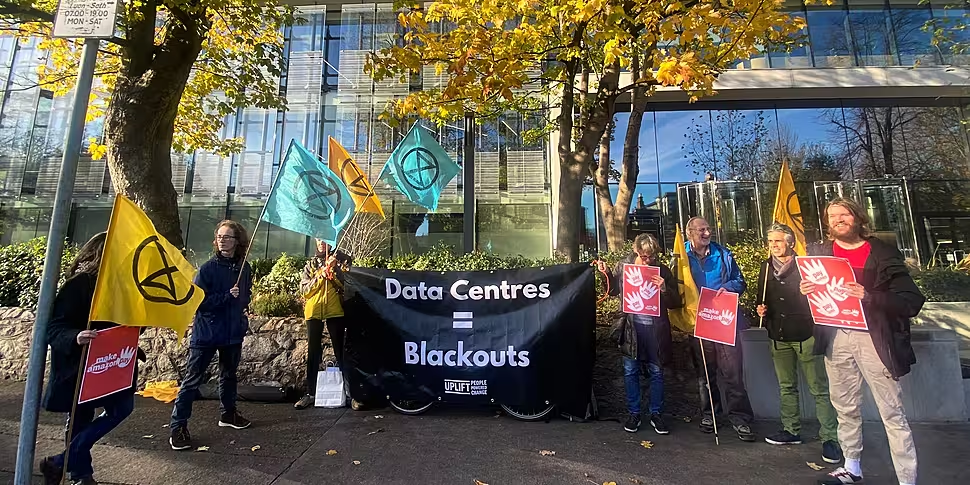A group of protesters have used Black Friday to highlight what they say is 'unsustainable environmental practices and worker conditions' at Amazon.
Climate groups Extinction Rebellion and Not Here Not Anywhere took to the company's Irish headquarters as part of a wider 'Make Amazon Pay' campaign.
They want the retailer to play its part in protecting the future, and have rapped to make their point.
They claim Amazon's data centre footprint here will amount to 4.4% of the State's entire energy capacity by 2026.
The firm was also recently granted planning permission for two new data centres in north Dublin.
This was despite objections from environmental groups, which expressed concern that it would place further pressure on limited energy supplies and have an adverse environmental impact.
Campaigner Manuel Salazar has said they want tighter legislation around data centres here.
"They have been granted the permission to have two data centres over here in Ireland," he said
"That would contribute to the taking of energy of 4% of the country, which is a really high, high toll.
"Amazon and their practices are not sustainable at all, that's what it is," he added.
Amazon reply
In response to the protest, a statement on behalf of Amazon said: "These groups represent a variety of interests, and while we are not perfect in any area, if you objectively look at what Amazon is doing on these important matters you’ll see that we do take our role and our impact very seriously.
"We are inventing and investing significantly in all these areas, playing a significant role in addressing climate change with the Climate Pledge commitment to be net zero carbon by 2040, continuing to offer competitive wages and great benefits, and inventing new ways to keep our employees safe and healthy in our operations network, to name just a few."
The company said it has committed to offtake 100% of the power from renewable wind projects in Cork, Donegal and Galway.
"These three wind projects will make Amazon the largest single corporate buyer of renewable energy in the country," it added.
Reporting by Mairéad Cleary









